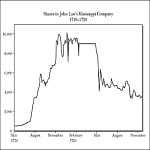 Look around. Reach for the sky. Breathe deeply. Listen peacefully. From here, at the mile high mountain village of Idyllwild, surrounded by tall pines, sweet smelling cedars, and panoramic views…we can do all of these things with great attainment.
Look around. Reach for the sky. Breathe deeply. Listen peacefully. From here, at the mile high mountain village of Idyllwild, surrounded by tall pines, sweet smelling cedars, and panoramic views…we can do all of these things with great attainment.
We see the natural world with awe and inspiration. From this vantage point – a rare escape from the frenetic Los Angeles Basin – not only do we get fresh oxygen…we get fresh perspective. The spirit of the San Jacinto Mountains is extremely lucid: “Change is in the air,” says Saint Jack.
Winter turns to spring. Spring turns to summer. The seasons cycle through with predictable expectations. It is generally cooler in the winter and warmer in the summer. Fall is when old life fades away and spring is when new life comes to be.
Change, however, is a subtle thing. For real change rarely comes to pass. Generally, what appears to be change is just a slight variation of something that’s come before.
“What has been will be again, what has been done will be done again; there is nothing new under the sun,” explains Solomon in Ecclesiastes. What was Solomon getting at? Maybe he’d become cynical watching man repeat the mistakes of the past with the predictability of the seasons. We don’t quite know…
The French Experience
In the mid-19th century, French writer Jean-Baptiste Alphonse Karr unintentionally freshened up the Old Testament’s canonical wisdom. “Plus ça change, plus c’est la même chose,” he uttered. This famous epigram translates to, “The more things change, the more they stay the same.”
Alphonse Karr, from what we gather, was simply making the observation that change merely reinforces the status quo. He certainly had first-hand experience to reflect upon. Alphonse Karr was writing at the time of the French Revolution of 1848.
With great hope, the February revolution ended the Kingdom of France and created the French Second Republic. But it wasn’t all days of wine and roses. The new government immediately enacted democratic reforms. You know what that means…
New property taxes were levied to pay for new jobs programs. By June of 1848 it was quite clear the new democratic government was simply mob rule. When the blowback against the new jobs programs circled through the democratic government, and plans were made to cutoff the programs, the workers rose up – unsuccessfully – in rebellion.
The National Guard came into Paris and smashed skulls. The remaining insurgents, those who weren’t killed, were deported to Algeria. Before long, elections were ended, the French Second Republic became the Second French Empire, and the nation was under Emperor Rule. How’s that for change staying the same?
Change We Can Believe In
Here in the United States we also know something about the euphoric elixir of change. If you recall, President Obama came to supremacy promising “change we can believe in.” Six years later, his change has brought us more of the same.
Just this week, for instance, President Obama ordered rule “changes” to expand overtime pay. “Overtime is a pretty simple idea,” said the President. “If you have to work more, you should get paid more.”
This seems like a backwards way to look at things, doesn’t it? Shouldn’t a person’s compensation be dependent upon the value of the product or service they provide, rather than hours logged? But this isn’t the only of Obama’s changes pulling things backwards…
Last month, President Obama ordered changes to the minimum wage. New health care rules seem to change every month. With all these rule changes, is it any wonder why the economy’s in a lurch?
That, regrettably, is a question we’ll have to answer another day. For, today, the burden is upon another, more dramatic, change coming our way. One that is, in effect, a repeat of 2000 and 2008. For instruction, we’ll return to 19th and 18th century France…
“Plus ça change, plus c’est la même chose.”
Perhaps, with this expression, Alphonse Karr was also intimating the notion of mean reversion. Conceivably, he’d seen a chart of John Law’s epic Mississippi Bubble and bust that precipitated economic collapse in early-18th century France. We aren’t certain about this, but we have an inkling mean reversion’s something he was onto.
One week ago the S&P 500 hit a new record high. This week it rolled over. Could it be commencing its long overdue reversion to the mean?
If it’s not, it should be. That’s the sort of change we can believe in. Can you?
Sincerely,
MN Gordon
for Economic Prism




